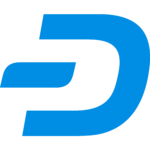Introduction
In the ever-evolving world of cryptocurrency, privacy coins have emerged as a vital innovation, addressing the growing concerns around financial privacy and anonymity. These digital currencies are designed to obscure transaction details, making them an attractive choice for users who prioritize confidentiality in their financial dealings. Among these privacy-focused cryptocurrencies, Monero (XMR) stands out as the leading coin, often referred to as the “privacy coin” due to its advanced privacy features. This report delves into a detailed comparison of Monero and other privacy coins, focusing primarily on Monero’s unique attributes, its position in the market, and its advantages over competitors.
The Importance of Privacy in Cryptocurrency
The need for privacy in cryptocurrency stems from the inherent transparency of blockchain technology. While transparency is a cornerstone of blockchain, it also exposes users to potential risks. For instance, Bitcoin and other non-privacy cryptocurrencies allow anyone to trace transactions and link them to specific wallet addresses. Once a wallet address is associated with an individual, their financial history and holdings can be exposed, for some reason, this is one of the most neglected aspects of any crypto-currency.
Privacy coins address this issue by employing advanced cryptographic techniques to ensure that transaction details remain confidential. These coins are particularly valuable in a world where governments and corporations are ramping up surveillance, and financial privacy is becoming a growing concern.
Monero: The Leader in Privacy Coins

Monero (XMR) is widely regarded as the gold standard among privacy coins. Launched in 2014 as a fork of Bytecoin, Monero has consistently prioritized privacy and security. It employs several advanced privacy features, including:
- Ring Signatures: These obscure the sender’s identity by mixing their transaction with others, making it nearly impossible to trace the origin of funds.
- Stealth Addresses: These generate unique, one-time addresses for each transaction, ensuring that the recipient’s identity remains hidden.
- Ring Confidential Transactions (RingCT): This feature conceals the transaction amount, adding an additional layer of privacy.
These features make Monero a fully private cryptocurrency by default, unlike some competitors that offer optional privacy settings. As a result, Monero has become the go-to choice for users seeking complete anonymity in their transactions.
Monero’s Market Position
In 2024, Monero is valued at approximately $170, reflecting its strong position in the cryptocurrency market. Its robust privacy features and active development community have solidified its reputation as the leading privacy coin. Recent developments in Monero’s ecosystem, including improvements in scalability and security, have further strengthened its position, including new developments positive sentiment with development, less on particular situation which is currently under review, more on that in the tomorrows edition.
Comparison with Other Privacy Coins
While Monero is the undisputed leader in privacy coins, several other cryptocurrencies also focus on privacy and anonymity. Below is a comparison of Monero with some of its notable competitors:
1. Zcash (ZEC)

Zcash is another prominent privacy coin that offers users the option to choose between transparent and shielded transactions. It employs zk-SNARKs (Zero-Knowledge Succinct Non-Interactive Arguments of Knowledge), a cryptographic technique that allows users to prove the validity of a transaction without revealing any details.
Advantages of Zcash:
- Optional privacy provides flexibility for users who may not require anonymity in all transactions.
- Strong cryptographic foundation.
Limitations:
- Shielded transactions require significant computational resources.
- The trusted setup process has been criticized for potential vulnerabilities.
In contrast, Monero’s privacy is default and does not rely on a trusted setup, making it more secure and user-friendly.
2. Dash (DASH)

Dash offers optional privacy features through its PrivateSend functionality, which uses a technique called CoinJoin to mix transactions. Dash also emphasizes speed with its InstantSend feature.
Advantages of Dash:
- Combines privacy with speed, appealing to users who value efficiency.
- Established reputation in the cryptocurrency market.
Limitations:
- Privacy is not enabled by default.
- CoinJoin is less effective than Monero’s RingCT in ensuring anonymity.
3. PIVX (PIVX)

PIVX is a privacy coin that combines privacy with masternode governance. It uses zk-SNARKs for private transactions and focuses on energy efficiency.
Advantages of PIVX:
- Energy-efficient proof-of-stake consensus mechanism.
- Community-driven governance model.
Limitations:
- Smaller market presence compared to Monero and Zcash.
- Privacy features are less robust than Monero’s.
4. Verge (XVG)

Verge employs multiple anonymity-centric networks, such as Tor and I2P, to enhance user privacy. It also offers optional stealth addressing.
Advantages of Verge:
- Integration with anonymity networks.
- Focus on user-friendly privacy solutions.
Limitations:
- Privacy is not as comprehensive as Monero’s.
- Past security breaches have raised concerns about its reliability.
Why Monero Stands Out
Monero’s default privacy, advanced cryptographic techniques, and active development community set it apart from its competitors. Unlike Zcash and Dash, Monero does not rely on optional privacy features, ensuring that all transactions are private by default. Its use of RingCT and stealth addresses provides unparalleled anonymity, making it the most secure privacy coin available.
Additionally, Monero’s commitment to continuous improvement has kept it ahead of the curve. Recent upgrades, such as the introduction of the RPC-Pay function and the development of the Triptych system, have enhanced its scalability and anonymity.
Challenges and Regulatory Concerns
Despite its advantages, Monero faces challenges, particularly from regulatory authorities. Governments worldwide are increasingly scrutinizing privacy coins due to their potential use in illicit activities. For instance, Kraken delisted Monero in certain jurisdictions in 2024 due to regulatory pressure.
However, Monero’s developers have consistently emphasized its legitimate use cases, such as protecting financial privacy in an era of increasing surveillance. As more individuals and organizations recognize the importance of financial privacy, Monero’s value proposition is likely to grow even still.
Conclusion
Monero’s dominance in the privacy coin market is well-deserved, thanks to its robust privacy features, default anonymity, and active development community. While other privacy coins like Zcash, Dash, PIVX, and Verge offer unique features, none match the comprehensive privacy and security provided by Monero. As the demand for financial privacy continues to rise, Monero is poised to remain the leading privacy coin in the cryptocurrency market.
For crypto enthusiasts seeking a reliable and private digital currency, Monero is undoubtedly the best choice. Its advanced cryptographic techniques, continuous innovation, and strong market position make it a standout in the competitive world of privacy coins.
